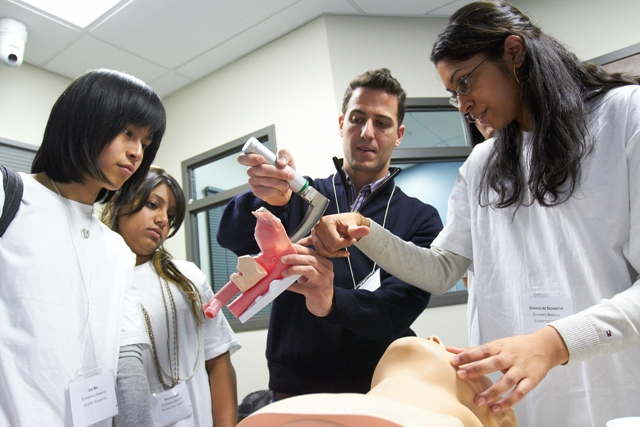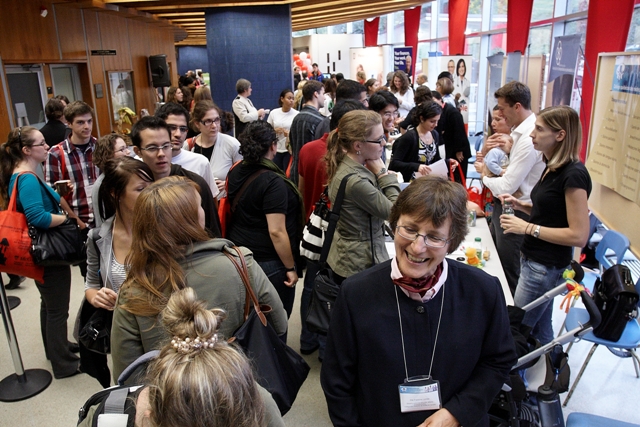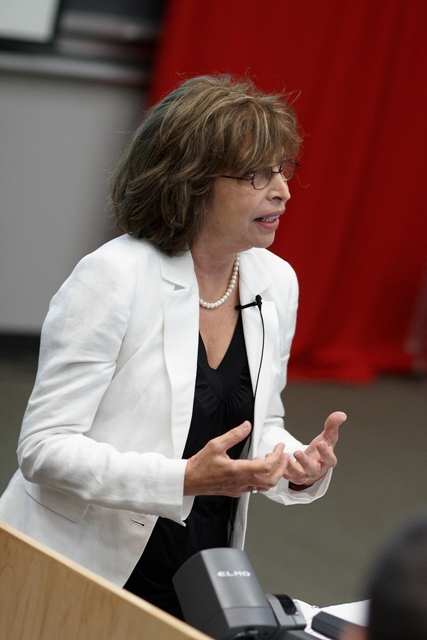By Maria Turner
http://www.youtube.com/watch?v=9secEdD3whw/>
Advanced cardiac life support, delivering babies, emergency intubations, musculoskeletal joint injections – family medicine practitioners get a chance to do all this and even more. As medicine enters the genomics age, new challenges and unprecedented opportunities abound. “There has never been a more exciting time to enter family medicine,” said Richard I. Levin, VP (Health Affairs) and Dean of the Faculty of Medicine at McGill University.
This was one of the take-home messages of the 2nd Family Medicine Student Symposium, held at McGill University this year, bringing together medical students from five universities (McGill, Université de Montréal, Univeristé Laval, Université de Sherbrooke and the University of Ottawa).
The daylong event highlighted the many reasons why family medicine is being rediscovered as a specialty in its own right. “I think that family medicine has had a very low profile historically; this kind of event really puts the field higher up,” said Dr. Alan Pavilanis, Chief of Family Medicine at St. Mary’s Hospital Center and Professor of Family Medicine at McGill. Dr. Pavilanis led a workshop on adolescent medicine and eating disorders at the Symposium. “This event exposes students to family medicine as a positive discipline and career choice.”

A day of discovery
Students did more than talk about family medicine at the Symposium. They also had the opportunity to try it out. McGill med-4 student Signe Richer, who gained experience in her medical elective in the Himalayas, led a group of participants to Mount Royal Park for a demonstration of wilderness medicine. “I think this is a really great way to solidify your basics and learn how to be prepared in all sorts of situations,” said Richer. “We’re all learning to be doctors and it’s very realistic that one day we’ll end up in a situation where we’re in the middle of nowhere and someone will say, ‘We need a doctor!’.”
At McGill’s Arnold and Blema Steinberg Medical Simulation Centre, students were learning and practicing other skills, wrapping pretend fractures in casts, delivering babies from mannequin patients, and learning the protocols for trauma cases. For Virginie Coulombe, a med student at l’Université de Montréal, and her friend, McGill med student Avril Bissonnette, it was a day of discovery. “It made me realize that family medicine is really diverse,” said Coulombe after a morning of workshops. “It’s not like a specialist who focuses on one part of the body, in family medicine, you treat the whole person.”

“I think the event in Quebec is unique,” said Francine Lemire, Associate Executive Director of Professional Affairs at the College of Family Physicians of Canada, who was at the Symposium representing the College, along with other partner organizations. “It’s a wonderful opportunity for medical students to network among themselves, to compare their programs, and to find out a little bit more about family medicine as a discipline from people on the ground.”
“Those of you who choose family medicine will be opting for diversity, intrigue, and challenge – in short, a life of adventure,” said VP-Dean Levin, who introduced Quebec Minister of Health and Social Services Dr. Yves Bolduc during the afternoon conference session attended by all students. Dr. Bolduc shared his own experiences of working as a family medicine practitioner for over 25 years and stressed the present-day importance of strong interpersonal skills and teamwork.

Keynote speaker Dr. Vania Jimenez, faculty member at McGill and medical director of CSSS de la Montagne, also spoke about what she had learned from her extensive career. Dr. Jimenez has worked and taught in diverse places, from the small Quebec town of Saint-Ours to Haiti, where she was part of a team providing on-site care to earthquake victims .
In Montreal, she practices family medicine obstetrics and helped establish La Maison Bleu, a community organization helping pregnant women in need. Jimenez shared stories from her practice: getting to know the whole village when working in Saint-Ours; delivering the children of a woman whose culture did not permit her to address the doctor directly; and treating a patient who had fled her own country so she could spare her daughter the ritual of genital circumcision.
“If you have trouble deciding what to do,” she said, ”family medicine allows you the freedom to choose a bit of everything.” Jimenez, a passionate doctor, the mother of seven children and grandmother to five, as well as the author of two novels, is living proof.
—
Read more here.
